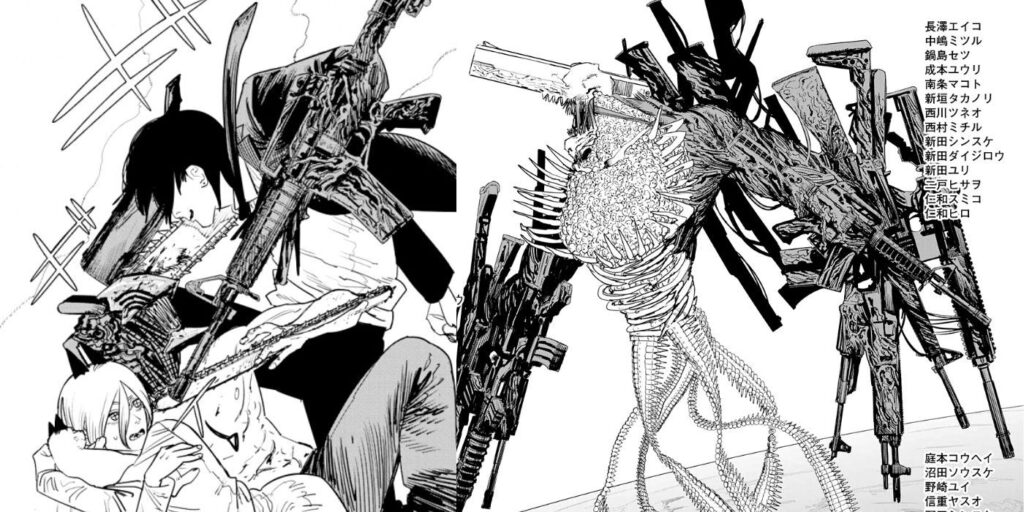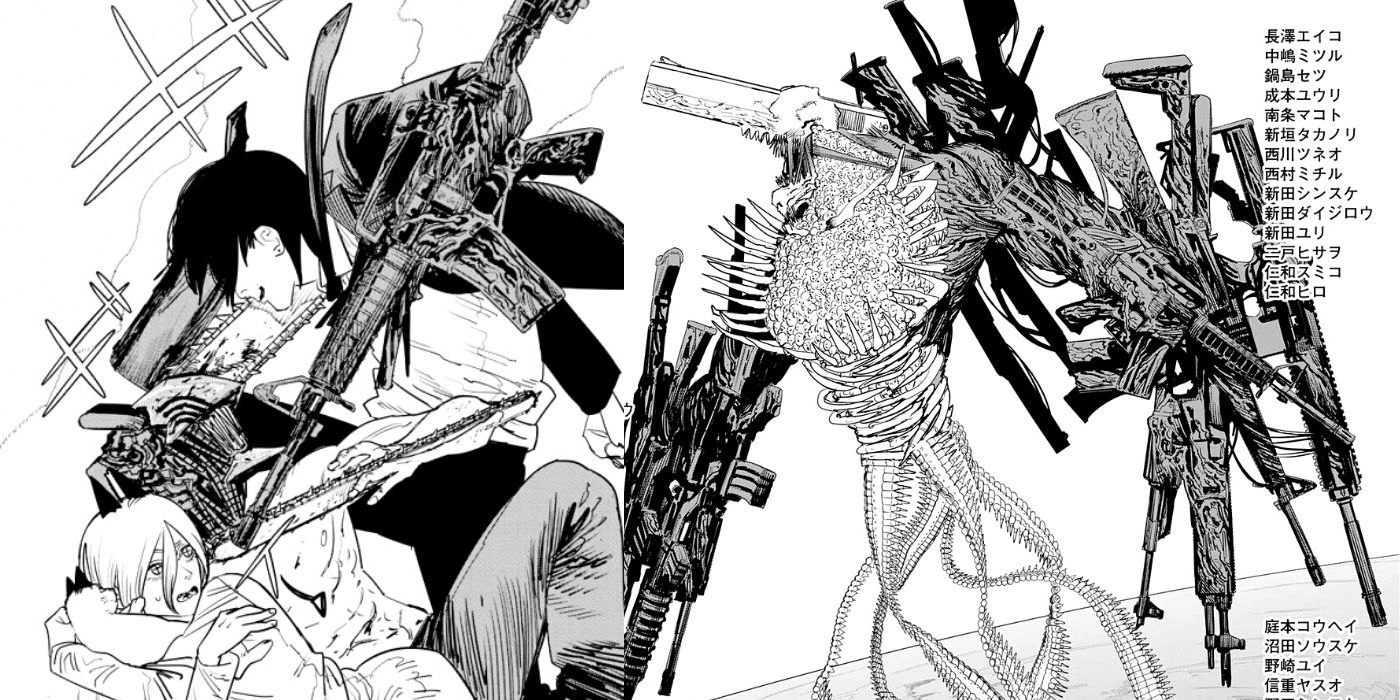
Aki Hayakawa: The Complex Heart of Chainsaw Man
Aki Hayakawa, a prominent figure in Tatsuki Fujimoto’s acclaimed manga series Chainsaw Man, stands out as one of the most compelling and tragic characters. His journey, marked by loss, duty, and a desperate search for meaning, resonates deeply with readers. This article delves into the intricacies of Aki‘s character, exploring his motivations, relationships, and ultimate fate within the brutal world of Chainsaw Man.
Early Life and Trauma
Aki‘s backstory is steeped in tragedy. As a child, he witnessed the brutal murder of his family by the Gun Devil. This horrific event serves as the catalyst for his entry into Public Safety Devil Hunters, fueling a burning desire for revenge. The trauma he endured shapes his worldview, hardening him and driving him to dedicate his life to eradicating devils, particularly the Gun Devil. This singular focus on vengeance becomes a defining characteristic of Aki early in the series.
Joining Public Safety and Forming Bonds
Driven by his thirst for revenge, Aki joins Makima’s special squad within Public Safety Devil Hunters. He quickly establishes himself as a capable and reliable hunter, known for his strategic thinking and unwavering commitment to his duty. However, beneath his stoic exterior lies a deep-seated vulnerability. He contracts with several devils, sacrificing his own lifespan to gain the power necessary to combat the Gun Devil. His contracts with the Fox Devil, Curse Devil, and Future Devil showcase his willingness to pay any price to achieve his goals. His initial interactions with Denji and Power are fraught with friction, as he views them as reckless and undisciplined. He struggles to accept their unconventional methods and perceived lack of seriousness. Over time, however, a complex and often turbulent bond forms between the three, and Aki starts to see them as something akin to family, a replacement for the one he lost.
Relationships with Denji and Power
The dynamic between Aki, Denji, and Power is central to the emotional core of Chainsaw Man. Initially, Aki acts as a reluctant caretaker, burdened by the responsibility of keeping Denji and Power in line. He provides them with a home, food, and a semblance of structure in their chaotic lives. Despite his gruff demeanor, he gradually develops a genuine affection for them, seeing them as younger siblings he needs to protect. He often finds himself exasperated by their antics but also recognizes their potential and the unique roles they play in combating devils. This shift in his perspective highlights his capacity for empathy and his growing ability to heal from his past trauma. Aki begins to prioritize their safety over his own vengeance, demonstrating the profound impact their presence has had on his life.
Contract with the Future Devil
Aki‘s contract with the Future Devil is particularly significant. It grants him the ability to see glimpses of the near future, providing him with a tactical advantage in battles against devils. However, the Future Devil also reveals a grim premonition: Aki‘s death is imminent and will be tragic. This knowledge weighs heavily on him, adding another layer of complexity to his character. He is forced to confront his mortality and the futility of his quest for revenge. Despite knowing his fate, Aki continues to fight, driven by his desire to protect Denji and Power and to make a meaningful impact on the world before his time runs out. The Future Devil’s visions serve as a constant reminder of his impending doom, creating a sense of tension and dread that permeates his actions.
The Gun Devil Arc and Transformation
The Gun Devil arc marks a turning point for Aki. As the battle against the Gun Devil intensifies, Aki becomes increasingly desperate to avenge his family. However, his actions are ultimately manipulated by Makima, who uses his desire for revenge to further her own agenda. In a cruel twist of fate, Aki is transformed into the Gun Fiend, a puppet controlled by the Gun Devil. This transformation represents the ultimate failure of his quest for vengeance. He becomes the very thing he swore to destroy, a tragic symbol of the destructive power of hatred and the corrupting influence of Makima. The transformation into the Gun Fiend robs Aki of his agency, turning him into a weapon used against his friends.
Final Confrontation and Death
As the Gun Fiend, Aki is forced to confront Denji in a heart-wrenching battle. Denji, unaware of Aki‘s true identity, is tasked with eliminating the Gun Fiend. The fight is portrayed as a surreal and dreamlike sequence, with Aki appearing as his younger self, inviting Denji to a snowball fight. This imagery underscores the innocence and humanity that Aki has lost. Denji eventually defeats the Gun Fiend, unknowingly killing Aki. Aki‘s death is one of the most emotionally devastating moments in Chainsaw Man, highlighting the tragic consequences of violence and the futility of revenge. It serves as a powerful commentary on the cycle of trauma and the importance of breaking free from the chains of the past. The loss of Aki deeply affects Denji and Power, forcing them to confront the harsh realities of their world and the fragility of life. [See also: Chainsaw Man Ending Explained]
Themes and Symbolism
Aki‘s character embodies several key themes in Chainsaw Man, including the nature of revenge, the importance of found family, and the corrupting influence of power. His quest for revenge ultimately leads to his destruction, demonstrating the futility of seeking solace in violence. His relationships with Denji and Power highlight the importance of human connection and the healing power of love and friendship. His transformation into the Gun Fiend symbolizes the loss of innocence and the dangers of unchecked ambition. Aki‘s story serves as a cautionary tale, reminding readers of the human cost of conflict and the importance of empathy and compassion. He represents the struggle to find meaning in a world filled with chaos and despair.
Legacy and Impact
Despite his tragic fate, Aki leaves a lasting impact on the characters and the world of Chainsaw Man. His death serves as a catalyst for Denji and Power’s growth, forcing them to confront their own vulnerabilities and to take responsibility for their actions. His memory inspires them to fight for a better future, one where innocent lives are not senselessly destroyed. Aki‘s character is a testament to the power of human connection and the enduring strength of the human spirit, even in the face of unimaginable adversity. He remains a beloved and unforgettable character, whose story continues to resonate with readers long after the final page. The complexities of Aki‘s character make him a fan favorite. His stoic exterior and hidden vulnerabilities make him relatable and his tragic end makes him memorable. Aki‘s journey is a complex and nuanced portrayal of grief, trauma, and the search for meaning in a world filled with darkness. His story serves as a powerful reminder of the importance of human connection and the enduring strength of the human spirit. The impact of Aki‘s death is felt throughout the remainder of the series. [See also: Power Chainsaw Man Character Analysis]
Conclusion
Aki Hayakawa is a multifaceted and unforgettable character in Chainsaw Man. His journey from a vengeful young man to a caring protector is marked by tragedy, sacrifice, and ultimately, redemption. His story serves as a powerful exploration of the human condition, reminding us of the importance of empathy, connection, and the enduring power of hope in the face of despair. Aki‘s legacy lives on through the characters he touched and the lessons he taught, solidifying his place as one of the most memorable figures in modern manga. The narrative around Aki is a testament to Fujimoto’s ability to create characters that are both deeply flawed and profoundly human. His story is a poignant reminder of the fragility of life and the importance of cherishing the connections we have with others. The character of Aki resonates with audiences due to his internal struggles and relatable motivations. His story remains a central part of what makes Chainsaw Man such a compelling narrative.

